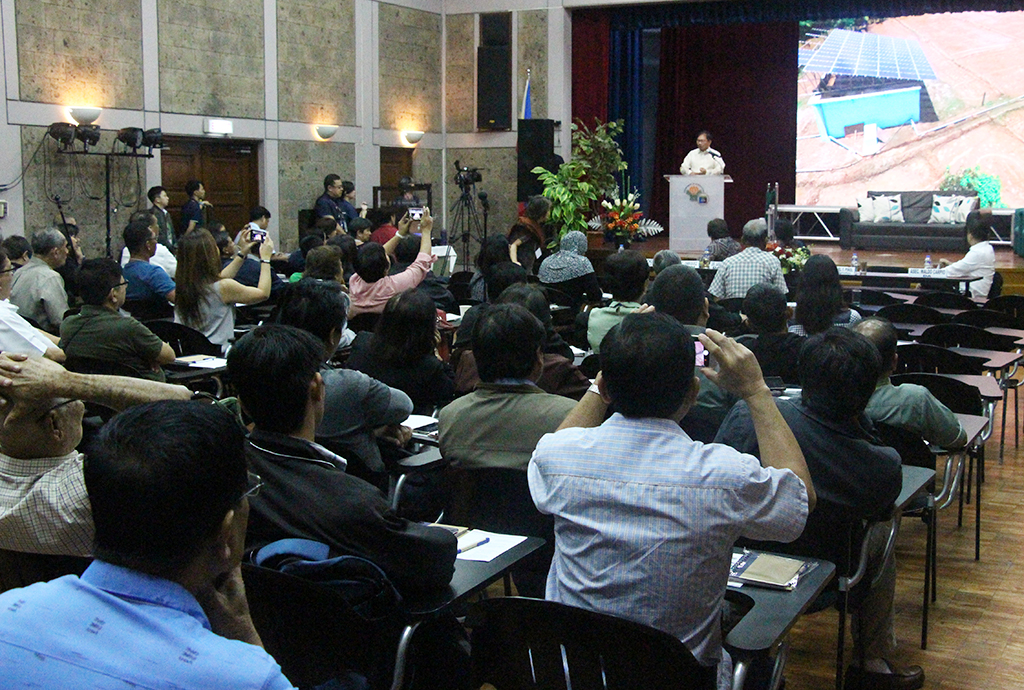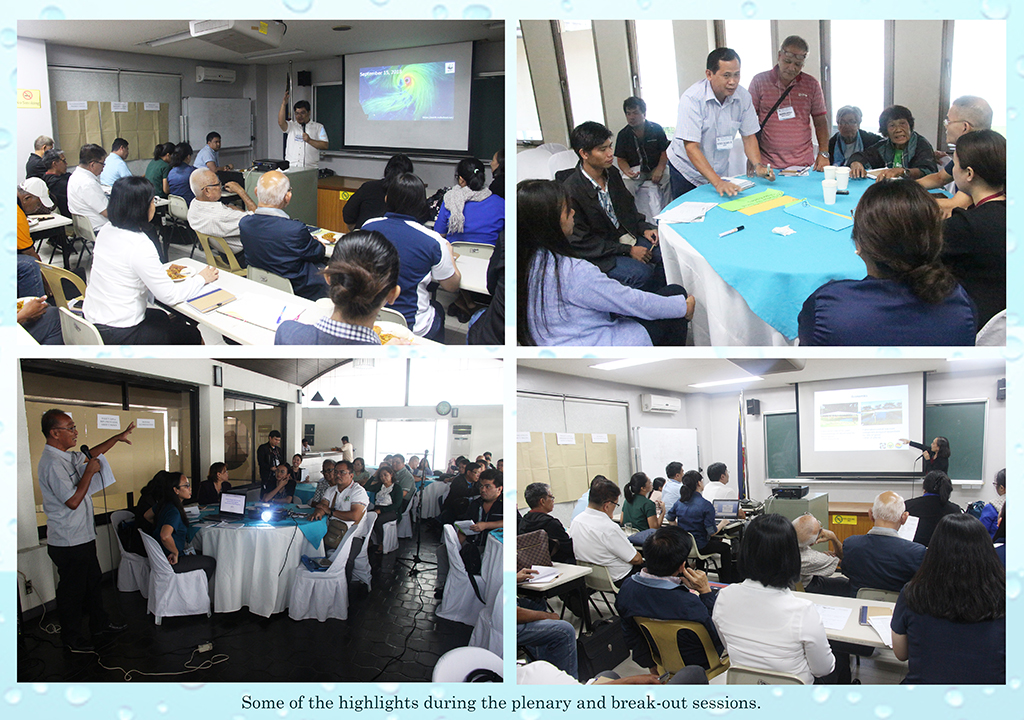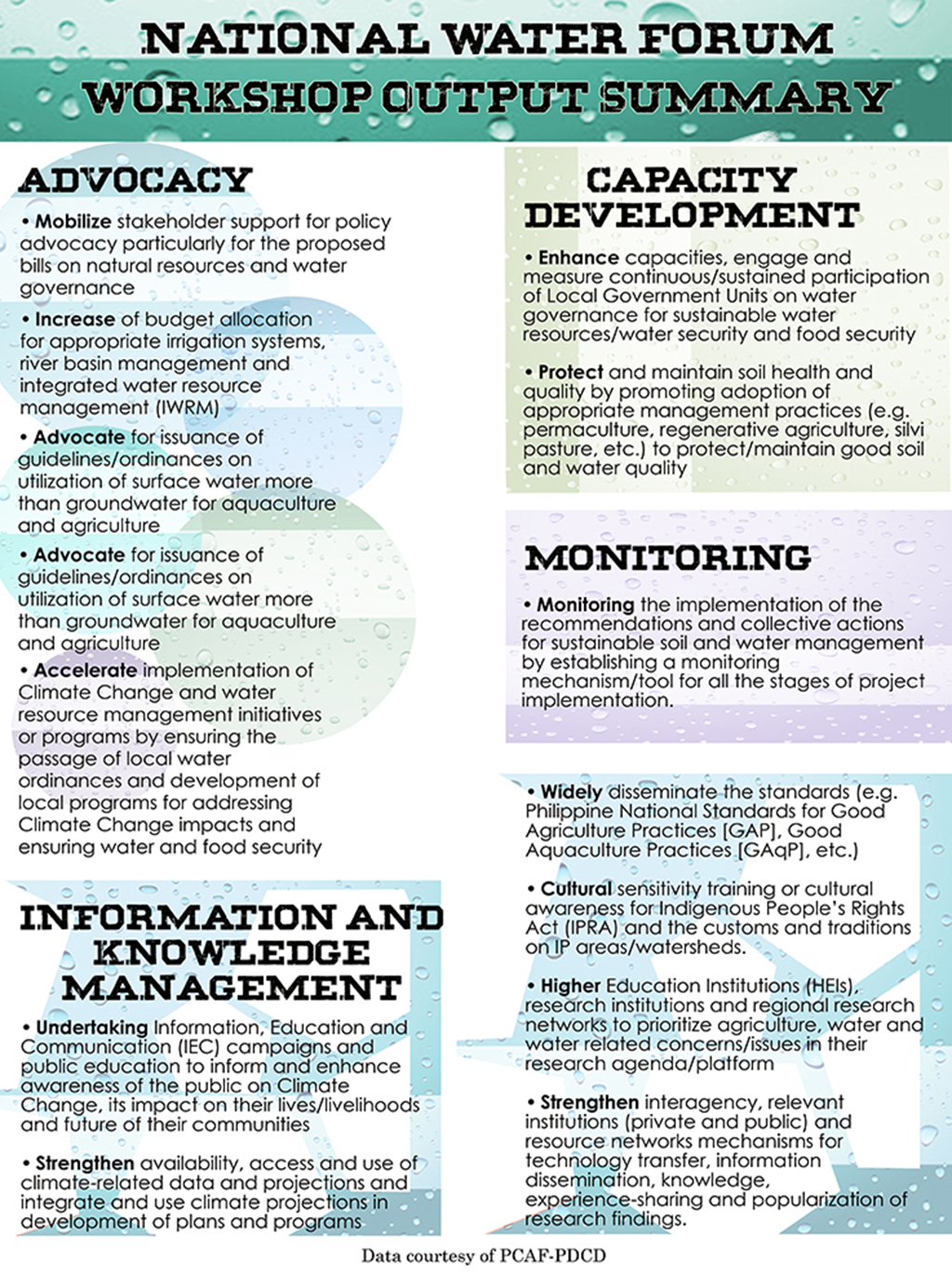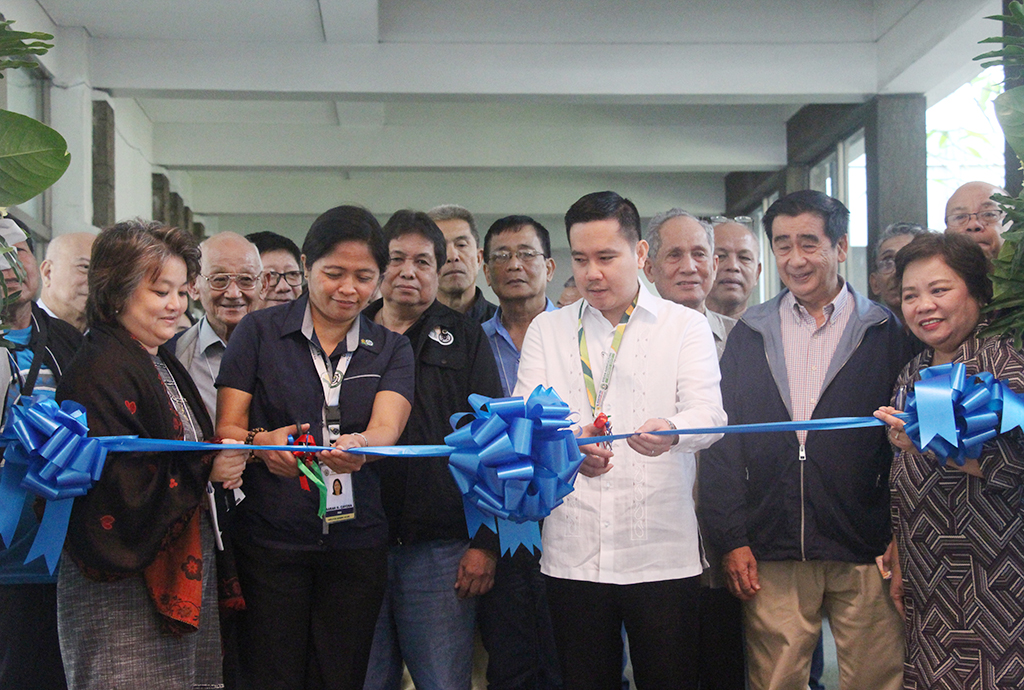
Some two hundred representatives from the water industry, both from government and private sectors pitched in their proposed recommendations and collective actions to address the water challenges in the agriculture and fisheries sector during the National Water Forum on October 23 to 24, 2018 in Quezon City.
Initiated by the Philippine Council for Agriculture and Fisheries (PCAF) Committee on Climate Change (CCC), the two-day forum aims to identify policy and practice gaps through plenary and thematic sessions arranged into separate discussion tracks to generate immediate actions and collective initiatives from the government and the whole of the society.
“The aim of this forum is not just to be able to come up with workable, doable and actionable policy recommendations, but we are also looking for strategies and solutions for water challenges for the agri-fisheries sector,” said PCAF Executive Director Sarah Gutierrez-Cayona.
Guided by the forum’s theme “Transforming Policy into Action”, the participants were divided into three groups to discuss thematic sessions, which includes Water and food Security Nexus Challenge, Innovative and Sustainable Freshwater and Aquaculture Practices, and Climate Resilient and Innovative Technologies.
The forum also increased the awareness of the industry stakeholders on key challenge areas and emerging issues by presenting evidence-based and science-based updates on water scenarios through inviting water-related industry experts.
The mix of expert-led presentations focused on water quality control, use, regulation and management. The resource persons also answered queries and clarified issues on the plenary and break-out sessions.

“One of the key challenges is Climate Change and the situation is urgent. Climate Change disrupts agricultural productivity and competitiveness. It affects aspects of food security, from availability to price stability,” said CCC Vice Chairperson Hazel Tanchuling.
The CCC is one of the eight National Sectoral and Strategic Concerns Committees (NSSCCs) of PCAF.
Tanchuling also said that the successful management and stewardship of the country’s water resources is key to Food Security and vital to achieving a sustainable, resilient, progressive and productive agriculture and fisheries sector that is align to Agriculture Secretary Emmanuel Piñol’s vision of Food Security.
Sec. Piñol also challenged the participants pointing that the Philippines is “an archipelago surrounded by water and have many water bodies, yet we are experiencing the challenge of diminishing water availability (and) increasing water scarcity. The time has come, something must be done.”
Among the recommendations and collective actions raised during the discussion tracks, the participants shared their approval to mobilize stakeholders to support for policy advocacy particularly for the proposed bills on natural resources and water governance, and to increase the budget allocation for appropriate irrigation systems, river basin management and integrated water resource management. (See infographics for more recommendations and collective actions.)

They also agreed to enhance capacities, engage and measure continuous participation of Local Government Units on water governance for sustainable water resources, water security, and food security.
The participants also include in their proposal the start of public education to inform and enhance awareness of the public on Climate Change, its impacts on their lives, livelihoods and the future of their communities.
There were also suggestion to use storm water for agricultural purposes. The Secretary also shared the same thoughts on using storm water where he mentioned that in other countries, storm water use for agriculture and other purposes is already mainstream.
“Yet in our country, na kung baga mayaman tayo hindi lamang doon sa natural na tubig sa itaas at ibaba, pero maski sa tubig ng bagyo at baha hindi pa natin sya ginagamit productively,” said Sec. Piñol.
A group of participants expressed their belief that a stronger local community-based action initiatives can fight the impacts of Climate Change while securing the water and food security.
The participants also reiterated their call on the passage of the National Land Use Act which will institute a national land use policy that will address the country’s land use for food, housing business, and environmental conservation efforts.

PCAF-Policy Development and Coordination Division consolidated all the generated recommendations and will be crafted as policy resolutions and policy action agenda.
Aside from the forum, a Knowledge and Learning Fair also displayed various learning and informational materials from participating agencies. JC











